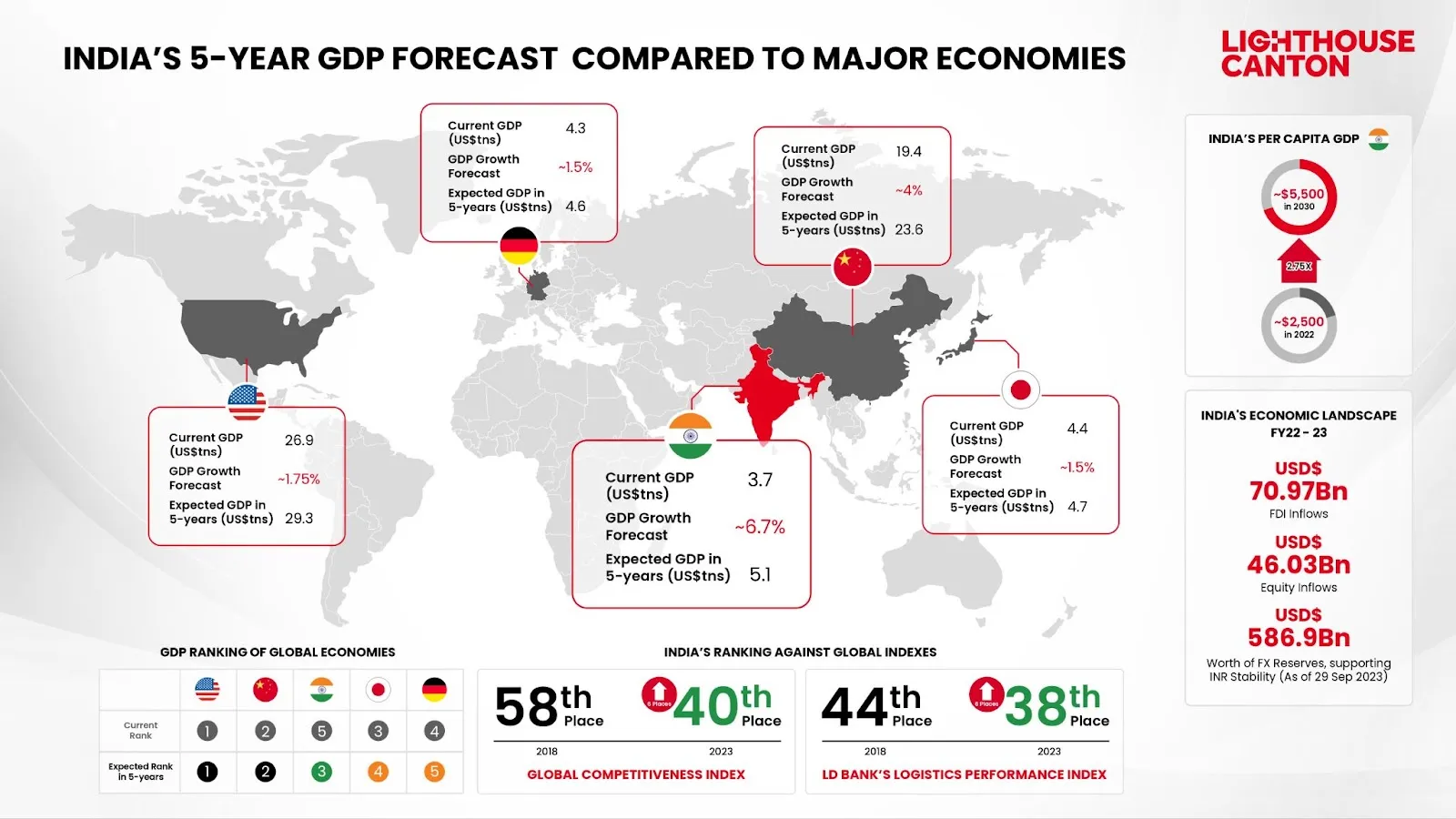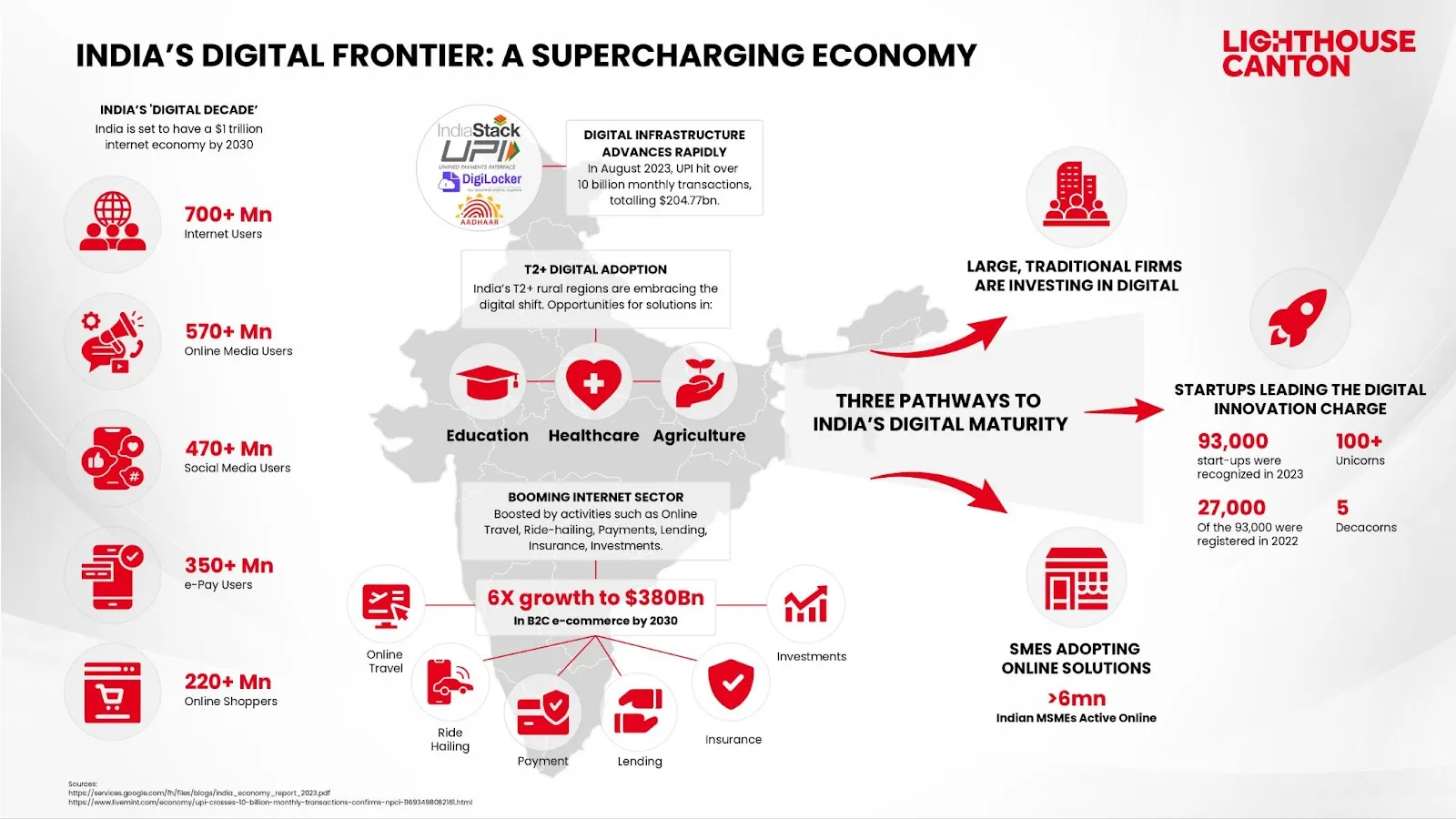Across Asia, venture debt is emerging as an increasingly attractive financing option for mid-sized companies aiming to scale operations and fuel growth. Unlike traditional venture capital, which often results in significant equity dilution, venture debt offers a more balanced approach—allowing businesses to access capital while retaining greater ownership. This form of financing is particularly appealing to companies that prioritize long-term expansion without compromising control or shareholder value.
In an in-depth discussion with Lighthouse Canton’s IDEAs: View & Insights, Sanket Sinha, Managing Director and Global Head of Asset Management at Lighthouse Canton, delves into this topic. He highlights how Lighthouse Canton actively supports businesses across Southeast Asia and India in leveraging venture debt as an alternative to equity funding, helping them achieve their growth objectives while preserving equity stakes.
Also read Venture Debt: A Cornerstone Of Private Credit Opportunities
The Focus in Southeast Asia
According to Statista, the total capital raised in the Venture Debt market in Southeast Asia is projected to reach US$4.1bn in 2024.
“In Southeast Asia, we focus on sectors such as FinTech and B2B commerce. These businesses share similar traits across economies, though localisation is crucial. What works in Indonesia may not apply in Vietnam, the Philippines, or Singapore. Despite these differences, FinTech and B2B commerce remain key focus areas due to their commonalities across the region” noted Sinha.
Driven by rising consumption and the need for accessible financial solutions, these two areas have seen massive growth in Southeast Asia over the past few years.

Data shows that the Fintech sector continues to lead investment activity followed by Health-Tech and Consumer Tech, in the region. Further, the new emerging themes related to Gaming and Blockchain are gaining significant momentum and surge in funding activity. While growth in VC investment in certain sectors may indicate potential for venture debt growth, it doesn’t necessarily guarantee it.
Venture debt typically complements venture capital, providing non-dilutive financing to startups already backed by VCs, often helping extend the runway without equity dilution. As we shared in our previous piece, in mature venture markets such as the US, venture debt constituted 15-20% of total VC funding even in difficult years such as 2022. However, for growing economies such as Southeast Asia (SEA) and India, venture debt investments vary in the 3-6% range of total VC funding.
Growing need for Venture Debt in India
There is growing momentum in India’s venture ecosystem and demand for venture debt resulting from the country’s strong economic growth and increasing capital demands from startups and small businesses. Government initiatives aimed at promoting entrepreneurship and innovation, and a growing digital economy have all further energised the startup ecosystem.


“As specialised lenders and international investors continue to focus on Indian startups, the venture debt market is poised for sustained growth, driven by a dynamic startup landscape and supportive government policies,” added Sinha.
In India, the company sees potential in similar sectors to Southeast Asia, such as FinTech, Electric Vehicle (EV) Mobility and B2B Commerce. Reports estimate that the country’s B2C e-commerce sector will grow to $380Bn by 2030, fuelled by a booming internet sector and activities such as ride-hailing, payments, lending, insurance and investments amongst some.
In the fintech space, the company’s investments focus on companies that are expanding financial inclusivity and accessibility through credit. "Our investee companies in fintech are focused on providing essential financial services to underserved communities, directly supporting our goal of fostering a more equitable financial ecosystem," Sinha explained. Some of the companies that the firm has invested in this sector include Loantap, Olyv and ePayLater.
The EV mobility sector has emerged as another area of strategic interest for Lighthouse Canton. At a recent annual convention of the Society of Indian Automobile Manufacturers (SIAM), Minister for Road Transport and Highways, Minister Nitin Gadkari, forecasted that the Indian electric vehicle market potential is likely to reach Rs 20 trillion (~US$2.25 billion) by 2030 across the entire EV ecosystem, and projected that it would likely hit 10 million units in annual sales.
"We are also investing in EV technology, with a particular focus on OEMs, EV leasing and financing, EV ride-hailing and Battery Tech," Sinha added. Portfolio companies in this sector include BluSmart, International Battery Company, 3ev and VidyutTech
While in the B2B Commerce sector, tailwinds such as global supply chain diversification measures and government initiatives by the India government, are creating favourable opportunities and growth for its export market.
The company’s focus in this sector has been to support companies that are helping SMEs expand their business volumes and market presence globally. “In this sector, we have focused on horizontal plays such as Udaan as well vertical plays such as Groyyo”, as per Sinha.
The Investment Approach: Balancing Precision with Purpose
The firm takes a meticulous approach in evaluating investment opportunities.
“We conduct thorough due diligence by reviewing financials and assessing the quality of the company's equity investors", Sanket Sinha said. This process involves a detailed bottom-up analysis to gauge the company’s debt repayment capacity. Unlike equity investments, which may begin with a top-down view of the sector, venture debt demands a more granular assessment of a company's financial health.
The evaluation process emphasises understanding the company's cash flow and ensures a clear picture of the company's financial viability.
While Lighthouse Canton’s investments in Southeast Asia and India are undoubtedly in high-growth sectors, the company’s investments also have a focus on providing growth capital and infrastructure, and on making a broader progressive impact. Its investments in venture debt are guided by a rigorous framework which integrates key environmental, social, and governance (ESG) factors. It became a signatory of the UN supported Principles of Responsible Investment (PRI, www.unpri.com) in 2023, and the team actively incorporates responsible investment considerations into their process.
“Since the launch of our first fund in 2015, we have always included ESG considerations in our investment philosophy and frameworks. In venture debt we apply these same considerations when selecting our portfolio companies, focusing on sustainable businesses that are driving improvements whether it is in standards of living, social welfare or environmentally”; as per Sanket Sinha.
As venture debt gains traction in Southeast Asia and India, it is poised to become a cornerstone of startup financing. This evolving landscape, marked by sustainable practices and sector-specific focus, promises to reshape how businesses access capital. For investors and entrepreneurs alike, venture debt offers a compelling avenue for fueling growth while fostering responsible innovation.














.png)
%20(9).webp)
.webp)
